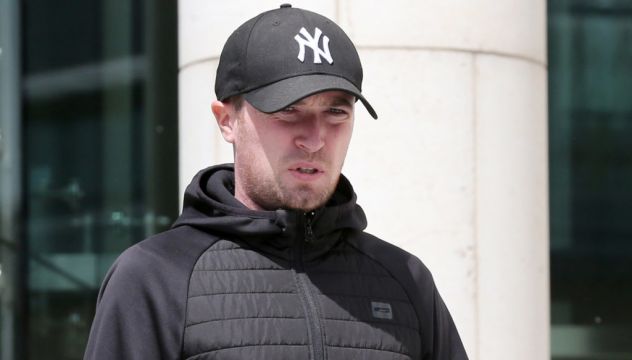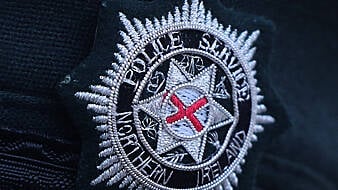A criminal made the "schoolboy error" of using his own name and car when he imported tracking devices that the Kinahan crime gang used in a murder and attempted murder, a Special Criminal Court judge has said.
On Monday, Martin Aylmer pleaded guilty to participating in or contributing to the murder of innocent father of four Noel 'Duck Egg' Kirwan in 2016.
He had previously pleaded guilty to a similar offence in relation to the attempted murder of James 'Mago' Gately.
Both men were targeted because the Kinahan cartel believed they were associated with people involved in the murder of David Byrne at the Regency Hotel in February 2016, the court heard.
In a previous case, the Special Criminal Court said it was “disturbing” that Mr Kirwan had apparently been shot for no reason other than the fact that pictures of him had appeared in the media in the company of a childhood friend.
The court heard Mr Kirwan had absolutely no involvement in criminality.
Michael Bowman SC, for Aylmer, told the court his client was at the lowest level of the criminal gang's "cellular structure".
Mr Justice Tony Hunt, presiding in the three-judge, non-jury court, said Aylmer "knew what he was up to and who he was involved with", having previously procured mobile phones for the murder of Michael Barr at the Sunset House pub in Dublin.
Mr Justice Hunt said Aylmer would be, "a very incurious person if he didn't connect his activities with the mayhem going on around the place".
However, he also agreed that Aylmer was not a "criminal mastermind" having twice travelled to Leeds in England by ferry using his own car and under his own name to purchase the devices, which gardaí were later able to track back to Aylmer.
Fingerprints
The accused's fingerprints were also found in the home of an accomplice on an instruction leaflet that could be linked to the tracking devices by a unique serial number.
The judge said there was a "lack of criminal sophistication" in what he had done, adding: "Booking things in your own name is a bit of a schoolboy error, I would have thought."
Aylmer (35), with an address at Casino Park, Marino, Dublin 3, pleaded guilty to participating in, or contributing to the murder of Mr Kirwan between October 20th, 2016 and December 22nd, 2016 with the knowledge of the existence of a criminal organisation.
He has also pleaded guilty to participation in the plan to murder Mr Gately between September 7th, 2016 and April 6th, 2017. Both offences are contrary to section 72 of the Criminal Justice Act 2006.
In 2018 Aylmer was sentenced to a little under four years after he pleaded guilty to buying mobile phones for the gang who murdered Michael Barr at the Sunset House pub in Dublin's north inner city on April 25th, 2016.
His sentence was later increased to six years by the Court of Appeal in a judgement that laid down the principles for sentencing people convicted of participating in offences carried out by criminal organisations.
Regency shooting
At Friday's sentencing hearing, Detective Sergeant Sean Cosgrove told Dominic McGinn SC, for the Director of Public Prosecutions (DPP), that Mr Kirwan was shot dead outside his home on December 22nd, 2016. The motivation for the shooting was that Mr Kirwan was "very indirectly" connected to people thought to be responsible for the David Byrne shooting, the detective said.
The garda investigation revealed the gang tracked Mr Kirwan's movements using an electronic tracking device. Gardaí discovered the device had been bought from 'The Spy Shop' in Leeds, England.
When gardaí tracked the movements of the device it showed that in October 2016 it was taken from there to Holyhead and then went by ferry to Dublin where it was taken to an apartment used by Aylmer at William St North in Dublin city centre.
That journey, the detective said, was consistent with the movements of Aylmer who had booked the ferry crossing in his own name.
The device was later placed on Mr Kirwan's car, but that was not done by Aylmer, Det Sgt Cosgrove said. The limit of his involvement was to import the tracking device, he added.
The garda agreed with Mr Bowman, for the defence, that Aylmer's involvement "couldn't be at a lower end of the scale".
Sgt John Rourke told Mr McGinn that the planned assassination of Mr Gately also arose because he was thought to be connected to those responsible for the Byrne murder.
Tracking devices
Aylmer imported three tracking devices in December 2016, having again travelled to Leeds using his own name and in his own car.
One of the devices was placed on Mr Gately's sister's car, while another was placed on the car of an entirely unconnected person who had parked outside the home of someone believed to be connected to Mr Gately, and the third device was attached to Mr Gately's car.
Aylmer's involvement was again limited only to importing the devices.
That planned assassination was foiled when gardaí arrested Estonian hitman Imre Arakas, who had been brought to Ireland to carry out the murder.
Arakas is currently in prison having admitted to conspiring with others to murder Mr Gately in Northern Ireland between April 3rd and April 4th, 2017.
Mr Gately was subsequently shot a number of times in a separate murder attempt but survived.
The sergeant said that besides his involvement in the Michael Barr murder, Aylmer has previous convictions for misuse of drugs, intoxication in a public place and threatening and abusive behaviour.
Under cross-examination, the sergeant agreed with Mr Bowman that the garda investigations into the attempted assassination of Mr Gately and the murder of Mr Kirwan brought to light the "cellular structure" put in place by the criminal organisation.
At the top of the cell, he said, are those directing and organising while at the bottom there is Aylmer, who is "the lowest of anyone involved in that cellular structure".
The detective said Aylmer does not have an "ingrained involvement in criminality", comes from a "hard-working and decent" family and has the potential for rehabilitation. He further agreed that Aylmer is "not likely to be before these courts again once released".
In his submissions, Mr Bowman asked the court to take into account that Aylmer had pleaded guilty, saving the courts and gardaí from a trial in which mobile phone, CCTV and computer evidence could have been the subjects of lengthy legal challenges.
Mr Bowman said it is also possible that Aylmer believed all the devices he imported were to be used for just one incident, rather than the three in relation to which he has been convicted.

He said his involvement in crime came about because of his friendship with a criminal and added: "He allowed himself to be used in circumstances where he is going to pay a considerable price for that."
Mr Justice Hunt said Aylmer "didn't step back, he kicked on" after the murder of Barr. However, the judge agreed with Mr Bowman that "once you get tangled up in this kind of knot, it's difficult to extract yourself".
Mr Bowman said Aylmer is an enhanced prisoner and has resolved not to reoffend.
He accepted that a custodial sentence is required but asked the court to consider rehabilitation as part of the sentence. Mr Justice Hunt said he would pass sentence on July 29th.







